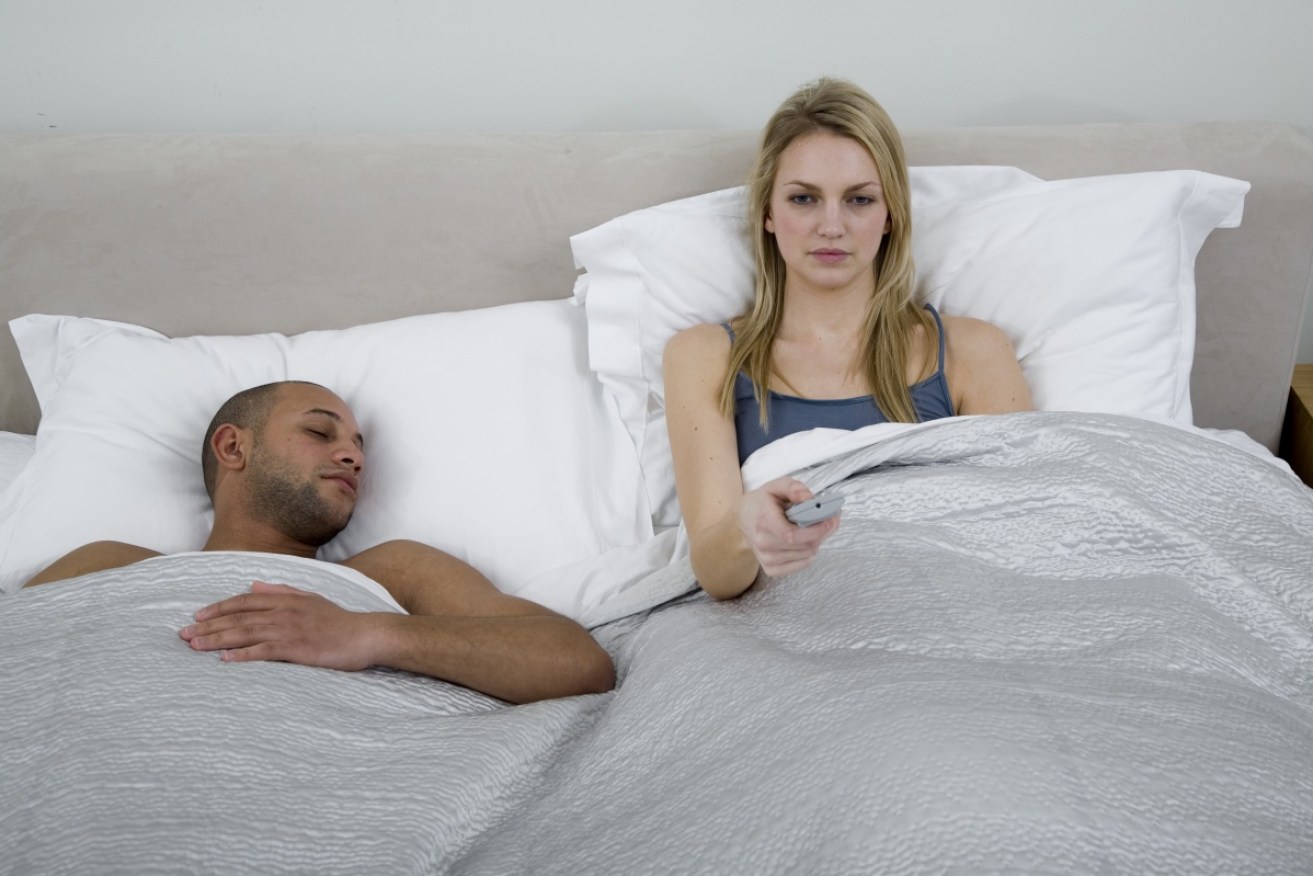No doze, no joke: How too little sleep can lead to big problems

Even one night of interrupted sleep can cause problems. Photo: Getty
Sleep deprivation – caused by anything from late nights at work to a night out with friends or from pacing the floor with a young baby – can lead to exhaustion and irritability.
But in some people, disrupted sleep can be linked to more serious problems, including bipolar disorder and depression.
A large British study, recently published in The Lancet Psychiatry, found a strong connection between altered circadian rhythm (the body’s 24-hour sleep-wake cycle), wellbeing and mood disorders.
Australasian Sleep Association spokeswoman Dr Siobhan Banks said circadian rhythm was important.
“We have internal clocks that help regulate our different physiological and psychological functions,” she said.
“Morning light signals the beginning of a cycle, with eating and exercise being other timekeepers. These work together to tell our body what time of day it is and what we should be doing at those times.”
Circadian rhythm and mood have an important “bio-directional relationship”. That means poor sleep has a negative effect on mood, and mood disorders can disrupt sleep.
To better understand this relationship, the British researchers used accelerometers to record the rest and activity of more than 91,000 people for a week.
They produced a measure for each person called a “relative amplitude”. A lower relative amplitude indicated a disrupted circadian rhythm.
Researchers found participants with lower relative amplitudes were most likely to report a history of bipolar disorder or major depression. They also had unstable moods, lower levels of happiness, higher scores on neuroticism, greater perceived loneliness, lower satisfaction with health and slower reaction times.

Morning light and exercise are big signals for the body’s regulatory system. Photo: Getty
Australians not getting enough sleep
Professor Danny Eckert, a sleep physician and Group Leader of the Sleep and Breathing Lab at Neuroscience Research Australia, said 40 per cent of Australians were getting too little sleep. This had a negative impact on performance and mood.
“I think we’ve all experienced how even one night of disrupted or inadequate sleep leads to poor decision-making the next day,” he said.
“An area of your brain called the amygdala is 60 per cent more reactive after one night of sleep deprivation, so you’re more likely to make rash decisions.”
Professor Eckert said sleep was a key pillar of health, along with diet and exercise.
“Every single organ, every single cell in the body is disrupted by [poor sleep],” he said.
“If you don’t sleep enough, you’re more likely to be obese, you’re more likely to die. The opposite is also true – when you prioritise sleep, it’s a great way to improve performance, alertness, productivity and live a longer, happier, healthier life.”

Mobile devices are a no-no ahead of bedtime. Photo: Getty
Tips for better sleep
Professor Eckert recommends a regular bedtime routine and avoiding bright light at least two hours before sleep. This is especially important when it comes to handheld devices such as smartphones and tablets, which suppress production of the sleep hormone melatonin.
Experts also recommend sleeping in a dark, quiet room, and keeping the bedroom only for sleep.
If you have a mood disorder and these tips aren’t helping, Professor Eckert recommends seeing your doctor for advice.
Dr Banks advises getting outside early in the morning, when our bodies are “primed to take light”. A short walk or just sitting in the sun – preferably without sunglasses – will help trigger a clear time signal.
Avoid exercise in the evenings, and, if you have a lot of trouble getting to sleep, steer clear of daytime naps.
At-risk groups
Some people have a greater risk of sleep disorders than others. This includes shift workers, new parents, students and those with obstructive sleep apnoea, Professor Eckert said.
These groups might need extra help to achieve the seven to nine hours a night that is generally recommended for most adults.
One effective way to find out exactly how much you need is to take a week’s holiday, Professor Eckert said.
“Assuming you’re not drinking alcohol – which will also disrupt your sleep – by the end of the week you should have a pretty good sense of how many hours you actually need to feel alert and happy the next day.”








